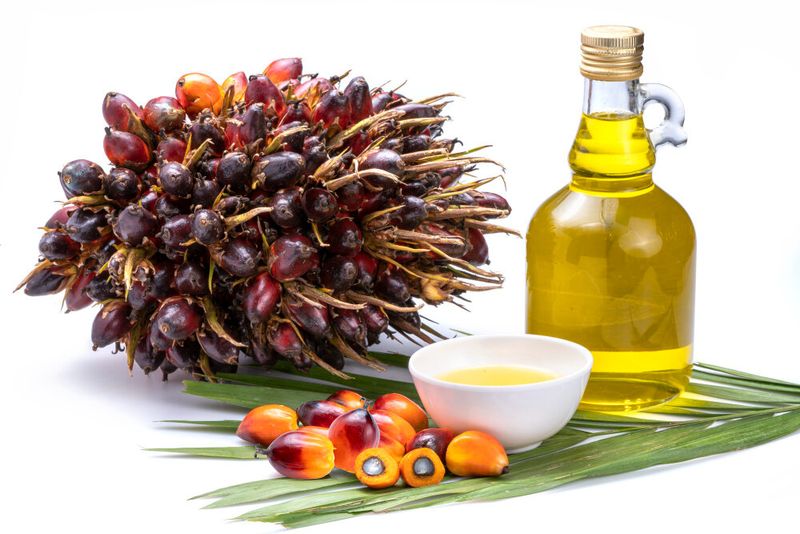Palm oil vital for Pakistan’s food, economic security, say experts

Palm oil continues to play a pivotal role in Pakistan’s food security, industrial growth, and nutritional landscape, with experts at a local hotel on Thursday calling for greater public awareness, sustainability measures and strategic policy support to harness its full potential.
Accounting for over 96 per cent of the country’s edible oil imports, palm oil is a staple ingredient in the country’s food industry, with annual consumption surpassing three million tonnes. Its wide-ranging uses include vanaspati ghee, cooking oils, shortenings, margarine, snacks and processed foods.
“Palm oil is a pillar of Pakistan’s oils and fats market,” said Nadar Ali Ghanghro, marketing officer at the Consulate General of Malaysia and author of ‘Palm Oil in Pakistan: A Pillar of the Oils and Fats Market and Its Impact on Food Security’. “Its natural stability, long shelf life and affordability make it essential for national nutrition and economic resilience, particularly in underserved and rural areas.”
Palm oil is naturally cholesterol-free, trans-fat free, and rich in antioxidants such as tocotrienols and beta-carotene. Its balanced fatty acid composition also supports cardiovascular health, nutrient absorption and overall energy needs, making it suitable for a variety of food applications when consumed in moderation.
Dr Ramle Moslim, deputy director-general (R&D) of the Malaysian Palm Oil Board, emphasised palm oil’s unmatched efficiency and adaptability. “Palm oil yields up to 10 times more oil per hectare compared to soybean, sunflower or rapeseed. This high productivity makes it a vital crop for sustainable food production and environmental conservation,” he said.
Dr Ramle also addressed the longstanding concerns surrounding deforestation and biodiversity loss, saying Malaysia is advancing towards a circular, zero-waste palm oil economy guided by science-based policies, reforestation efforts, and multi-stakeholder governance involving NGOs and regulatory bodies. “Our ESG-aligned practices aim to make palm oil a global model of responsible agriculture,” he added.
Zafar Mahmood, CEO of NIMIR, highlighted the industry’s move toward sustainable sourcing practices. “Major multinationals in Pakistan are now demanding RSPO-certified palm oil — whether Mass Balance, Segregated, or NDPE-compliant. This shift is driving supply chain transparency and environmental responsibility across the sector,” he said.
Palm oil’s nutritional benefits and economic impact are often misunderstood, said Dr Hammad Hassan, assistant professor at Aga Khan University. “There is a lot of misinformation. In reality, palm oil delivers vital nutrients, supports livelihoods, and is more sustainable than many competing oils when produced responsibly,” he noted.
Research efforts are also underway to explore palm-based nutritional interventions. Red palm oil, in particular, is being studied for its potential to combat micronutrient deficiencies in vulnerable populations through healthcare and dietary programmes.
As experts advocate for a collaborative, multi-stakeholder approach to palm oil governance — uniting science, policy, and public engagement—the commodity remains firmly embedded in Pakistan’s national food and economic strategy.
“With continued improvements in traceability, nutrition, and environmental practices, palm oil is well positioned to remain a critical contributor to global food systems and national development,” said Dr Ramle. “It is time to build collective understanding and support its responsible growth.”
For almost 30 years of expertise in the agri markets, UkrAgroConsult has accumulated an extensive database, which became the basis of the platform AgriSupp.
It is a multi-functional online platform with market intelligence for grains and oilseeds that enables to get access to daily operational information on the Black Sea & Danube markets, analytical reports, historical data.
You are welcome to get a 7-day free demo access!!!
Read also
Malawi’s private grain traders defy export ban amid low domestic maize prices
European Commission tightens oversight of feed imports: special biosafety task for...
Palm oil prices fell at the close on Friday but have risen for the month.
European elections this year could intensify protests against grain from Ukraine
Secure Early Ticket (offline & online) for BLACK SEA GRAIN.KYIV by Feb 15!
Write to us
Our manager will contact you soon



